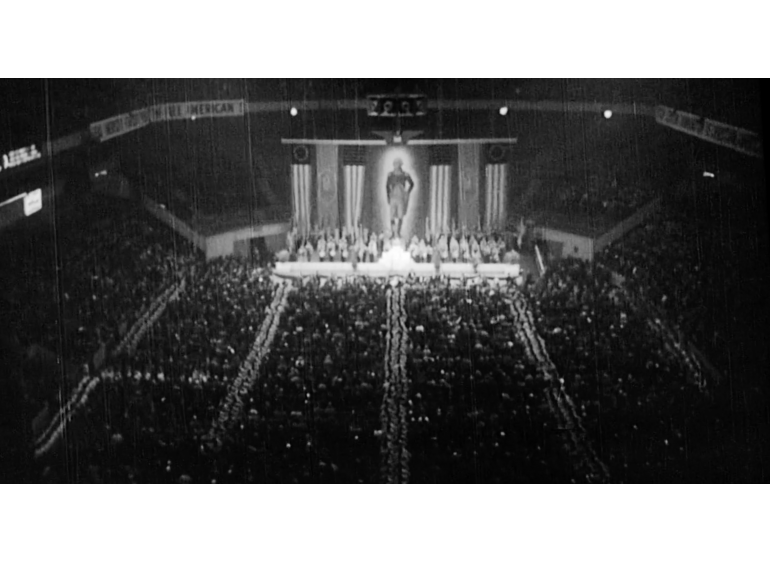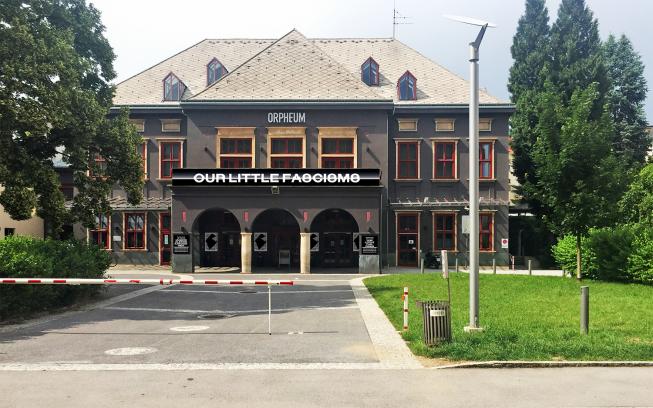Fascists usually spoke ill of liberalism and rejected this concept decisively, sometimes with vehemence. We shall see that there were significant exceptions to this stance. Yet I will not make these exceptions the center of my analysis. Rather, I will dispute the consequences regularly drawn from this fact, two such consequences above all: a) that the habitual fascist rejection of liberalism implied an approximation, however “dialectical” to socialism and b) that it implied a rejection of capitalism and the bourgeois socioeconomic order. As far as that problem is concerned, of mapping fascism with relation to socialism and to capitalism, the word “liberalism” offers little help. For what does it mean that one is “anti-liberal”? One can, of course, embrace anti-liberalism from an anti-capitalist and anti-bourgeois position, whereby liberalism means roughly the same as the ideology and practice of capitalism. But, and this is often ignored, one can be anti-liberal from a markedly pro-capitalist and pro-bourgeois position, whereby liberalism means an ideology and practice that burdens capitalism and stands in its way. So words, in and of themselves, do not mean much, and taking the “fascists at their word” means even less unless we are willing to interrogate what words concretely denote, to ask what forces, institutions, and projects, whether political, social or economic, are attacked or promoted when certain words are uttered. But this approach necessitates a methodology that is not idealistic but historical, one that inquires into how concepts have been used concretely in history and to what end, rather than assuming their a-historical, platonic fixity.
Among those who struggled to invest socialism with a new meaning, one amenable to fascist and conservative purposes, was Oswald Spengler, notably in his post-First-World-War treatise Prussianism and Socialism, which found significant resonance among German right-wing circles. Spengler, idealistically and technically, was thus by his own avowal a socialist, like so many other fascists who adopted the term socialism and affixed it with some qualifying adjective, be it “Prussian,” “German,” “new,” “national,” “real” or any other. Yet I will argue that Spengler, like most pro-fascists, did not approach words and concepts with reverent awe. They signified for him not sacred ideals but profane tools. Below, I will inspect the exact nature of Spengler’s “socialism,” and in doing so I will, to some extent, have recourse to materialist de-construction, now so out of fashion. But at this introductory stage let us only register the fact that Spengler himself found his own use of the word “socialism” disconcerting and felt that explanations were in order. Thus, in his later book, Jahre der Entscheidung, published in 1933, reflecting on his prior use of the term “socialism,” Spengler wrote:
The methodological question arises: how can we take someone like Spengler “at his word,” when he tells us that words, precisely, scarcely matter? But words, of course, do matter, particularly for an intellectual like Spengler, someone who produces nothing but words. And we shall see that Spengler chose the term socialism not quite as casually as he later implied. Nor was Spengler the only German on the right to express such semantic qualms. Adolf Hitler was similarly irritated by the habit of taking some words literally. Of the many words in the German language, he, too, made this point with reference to the exact same word as Spengler, as the following dialogue with Otto Strasser shows:
‘That word “socialism” is the trouble,’ said Hitler (Strasser 1940: 112).
As these examples demonstrate, we cannot simply take fascists at their word when they themselves found words, especially “socialism,” evasive and irksome. The historian, particularly one who claims to adopt the fascists’ own perspective, is not allowed to un-problematize words and concepts which the fascists themselves expressly regarded as problematical. And socialism is not the only word which must be put in historical context. Fascist avowals concerning “liberalism” ought to be approached with similar caution. Indeed, fascists themselves were not unaware of the tensions, difficulties and ambiguities presented by the semantic field in that direction, too. For example, in September 1921, the highly-placed Italian fascist Massimo Rocca, formerly a revolutionary syndicalist, published a short essay entitled “A Neo-Liberalism?” in which he argued, among other things, that “the disastrous experience of political democracy, socialistic and leaning towards socialism [socialistoide], had amply rehabilitated the liberal conception,” and that a movement that “would rebel against the collectivist mania...would end up being a liberal neo-conservatism from the right” (Rocca 2004: 90). Sensing, however, that such argument would surprise some of his fellow fascists, Rocca then added: “The conclusions we have reached might astonish the young, in particular, who are afraid of old words, like some of the old are afraid of new ones. But there is nothing dishonorable in connecting the noble exuberance of so many young people to what had been the old Right, creator of the political and economical unity of Italy” (91; italics added). Yet it is not quite clear, in that formulation, what precisely the author suspected would be found “astonishing” about his conclusions: is it the suggestion that fascist politics should, in practice, renew the tradition of the Destra storica, or rather the fact that to this politics would be affixed that “old” and “frightening” word—“liberalism”? Did he, in other words, feel that the political content of his views would be alarming, or rather his chosen terminology, his readiness to call such politics by its proper name?
Be that as it may, it is clear that Rocca’s rhetoric is not that of the run-of-the-mill fascist. As already mentioned, fascists typically refrained from affiliating themselves with liberalism. Yet fascist rhetoric notwithstanding, I will claim that fascism was not an outsider to the liberal, “open society,” but in fact an intimate insider to that society, which was not particularly open, either. Far from being the antithesis of fascism, its absolute Other, the liberal order significantly contributed to fascism, informing many of its far reaching manifestations. I will attempt to make the case that most of the pernicious and extremist aspects of fascism, aspects usually seen as attacking liberalism— repudiation of democracy; dictatorship; assault on rationalism and scientific objectivity; propaganda; chauvinistic nationalism; imperialist and racial war—are historically unthinkable outside of the liberal framework. Fascism was an organic product of developments largely (that is to say: not entirely) from within liberal society and ideology. It was an extreme attempt at solving the crisis of liberalism, breaking out of its aporia, and saving the bourgeoisie from itself.
I am aware of the fact that this claim of a liberal-fascist affinity, of an ideological, social and historical nature, will startle some readers. It is understood that many liberals will find it objectionable, if not outright offensive. This indignation is to be expected, although, as I shall shortly explain, it would in many cases be unwarranted by my precise argument, which does not advance a sweeping criticism of liberalism. More problematic for my argument, seems to be the fact that remarkably few non-liberal critics, either from the right or from the left, have so far undertaken a sustained scrutiny of the liberal tradition in the context of studying fascism, or thought it worthwhile to investigate classical liberal texts in search of the roots of fascist ideology. It is partially as a result of such surprising omission that the pervasive narrative construing fascism and liberalism as antithetical has attained something of a hegemonic status.

